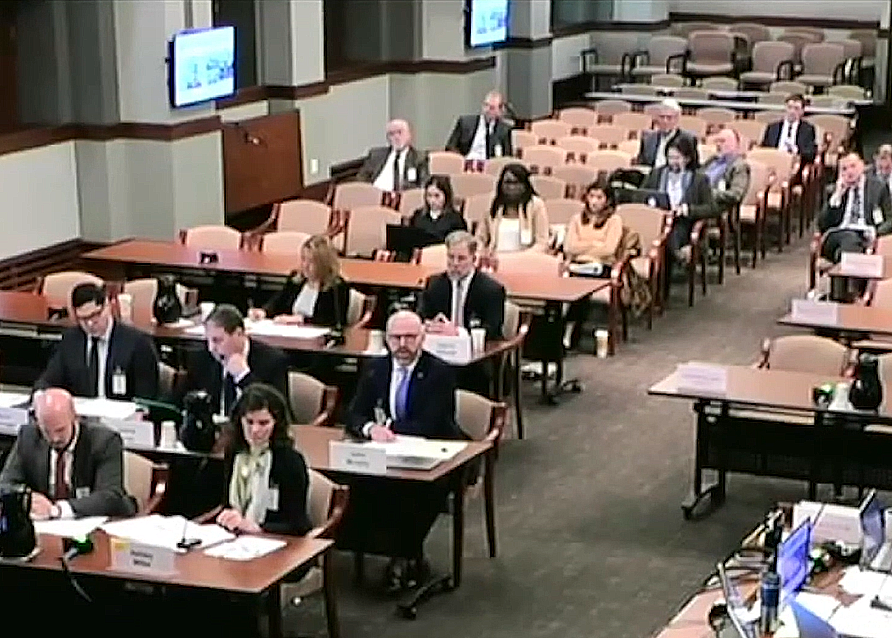The threat of expanding intellectual property waivers by the World Trade Organization (WTO) dampens investment in research, Biotechnology Innovation Organization’s (BIO) Chief Policy Officer John Murphy testified as U.S. International Trade Commission (USITC) held hearings on a proposal for a new TRIPS waiver Wednesday.
The goal of the hearing was to determine whether the United States should support a proposal to extend the waiver of IP on COVID-19 vaccines to include COVID diagnostics and therapeutics.
The U.S. Trade Representative (USTR) agreed to the first IP waiver in June, but before supporting the extension, they requested an investigation from the USITC. As part of their investigation, USITC held two days of hearings, Wednesday and Thursday.
“A waiver of IP rights would significantly disrupt the existing investment and research landscape in the biotechnology sector—with a particularly acute impact on U.S. based SME biotech firms,” Murphy said in his written testimony to explain BIO’s position.
“Biotechnology innovators in the United States account for over 50% of the COVID-19 therapeutic research and development programs globally. In addition, 87%, or 213 out of the 243 COVID-19 therapeutic development programs in the U.S. originated from SME biotech firms,” the written testimony added.
Chilling effect on investment
During his spoken testimony at the hearing, Murphy noted that the first waiver had a chilling effect on investment in innovation and said that the threat of more waivers makes the situation worse.
“It is that question of the word waiver, whether it’s limited or not, it recognizes a fact that WTO agreements have the propensity to be renegotiated on the fly—waived in some circumstances. And that makes it harder to confirm to funders that the market that exists now will be the similar market that exists when a product comes to market in 5, 10, or 15 years, with $2-3 billion of outside funding,” Murphy explained.
He added that the threat of IP being taken away by the WTO is already dampening the appetite of investors considering putting funding into research, and that behavior of WTO is more important than their stated policies.
“Investors are going to look at the actions associated with all of the advocacy organizations as well as the officials in the WTO, and they’re going to titrate their investment based on that, not just on the paragraphs on the page,” Murphy said.
In addition to Murphy, witnesses included BIO Board member Eddie Sullivan, President and CEO of SAB Biotherapeutics; Debbie Hart, President and CEO of BioNJ; George Scangos, CEO of Vir Biotechnology; Dennis Purcell, Partner at Aisling Capital; as well as representatives from BIO members Eli Lilly, Gilead Sciences, and Merck.




